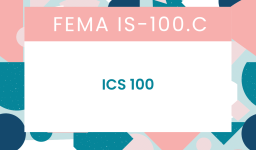- 12th Grade
- Lexile: 1540
Source: A Modest Proposal by Jonathan Swift
Assessment Answers
| Question | Answer |
|---|---|
| PART A: Which TWO of the following statements best describe the central ideas of the text? | In order to control population and poverty, the children of the poor should be sold as food. The social situation during this time is dire, with poverty rampant throughout the kingdom, particularly in Ireland. |
| PART B: Which TWO of the following paragraphs best support the answers to Part A? | Paragraph 6 Paragraph 24 |
| PART A: To what is the author referring when using words like “breeders” (Paragraph 5, Paragraph 14, Paragraph 18, and Paragraph 21) and “commodity” (Paragraph 6 and Paragraph 29) in the text? | Poor child-bearing women and their children. |
| PART B: What effect does the author’s word choice have on the tone of the text? | It dehumanizes these people, reducing them to their worth or abilities (i.e. giving birth), conveying a tone of indifference. |
| How does Swift’s use of hyperbole, or exaggeration, contribute to this satirical text? | By suggesting taboos such as infanticide and cannibalism to solve social issues, Swift employs hyperbole to satirize the government and upper class’s lack of concern for poverty. |
| Which TWO groups is Swift ultimately criticizing in “A Modest Proposal”? | the upper classes politicians (both Irish and English) |
How does the following quote develop the narrator’s point of view ?: “I desire those politicians who dislike my overture … that they will first ask the parents of these mortals, whether they would not at this day think it a great happiness to have been sold for food, at a year old in the manner I prescribe, and thereby have avoided such a perpetual scene of misfortunes as they have since gone through by the oppression of landlords, the impossibility of paying rent without money or trade, the want of common sustenance, with neither house nor clothes to cover them from the inclemencies of the weather, and the most inevitable prospect of entailing the like or greater miseries upon their breed for ever.” (Paragraph 32)
The quote from Paragraph 32 of Jonathan Swift’s “A Modest Proposal” develops the narrator’s point of view by intensifying the satirical critique of the social and political situation in Ireland. This passage serves several purposes in shaping the narrator’s perspective:
- Highlighting the Desperation of the Poor: By suggesting that parents might consider it a “great happiness” for their children to be sold as food to avoid a life of misery, Swift emphasizes the extreme desperation and hopeless conditions faced by the poor. This hyperbolic statement underlines the severity of their plight.
- Critiquing Political Inaction and Indifference: The narrator challenges politicians who oppose his proposal, pointing out the dire circumstances of the poor due to societal neglect and exploitation. This is a direct critique of the ruling class and policymakers who have failed to address the poverty and suffering in Ireland.
- Satirizing the Lack of Viable Solutions: Swift’s narrator insinuates that the proposed cannibalism is a better alternative than the current situation, which is fraught with “oppression of landlords,” lack of money, and absence of basic necessities. This exaggeration is a satirical way to criticize the lack of real and humane solutions being offered by those in power.
- Emphasizing the Cycle of Poverty and Misery: The quote also underscores the generational aspect of poverty, as the current generation of the poor is likely to pass on the same, if not worse, conditions to their children (“entailing the like or greater miseries upon their breed for ever”). This reflects the narrator’s cynical view that the situation is so bad that being sold for food as infants would be a preferable fate.
Overall, this quote sharpens the satirical tone of the text, using dark humor and exaggeration to criticize the societal and political neglect of the impoverished in Ireland, while also highlighting the absurdity of looking for simplistic solutions to complex social issues.
Discussion Answers
Can any proposal be justified if objectively analyzed and presented? Why or why not? Explain your answer in detail.
No, not any proposal can be justified even if objectively analyzed and presented. There are several reasons why:
- Morality and ethics – Some proposals can simply be unethical or immoral, regardless of how objectively or rationally they are defended. For example, Swift’s satirical proposal to eat infants could not and should not ever be justified, no matter how logical the arguments. There are ethical lines that should not be crossed.
- Unintended consequences – An objective analysis may miss or fail to fully consider negative unintended consequences that could result from a proposal’s implementation, even if the proposal seems well-reasoned on the surface. Most proposals have complex implications that extend beyond what can be comprehended through pure logic.
- Flawed assumptions – Underlying all arguments are assumptions and premises. If these foundational assumptions are flawed, biased, or inaccurate, then any subsequent objective reasoning built upon them will lead to unsound conclusions and proposals that should not be justified or enacted.
- Subjective values play a role – Pure objective analysis ignores issues like morality, quality of life, ideals of justice or virtue that shape human societies.
- But public policy proposals inevitably involve navigating difficult trade-offs between objective benefits/efficiency and more subjective societal values. A proposal cannot and should not be judged solely on objective merits.
In summary, while vigorous, unbiased analysis is important, at the end of the day both quantitative assessments and ethical judgments based on shared human values should determine whether any given proposal is justifiable.
Relying solely on seeming objective rationality without accounting for moral, unintended harms or questionable assumptions can potentially “justify” clearly harmful, unethical policies. More than objective logic is required when proposing solutions that impact human lives and welfare.
What is fair? Drawing upon your own experiences and outside readings, explain your answer in detail.
I believe at its essence, fairness means treating people equitably, justly, and in a manner that honors their dignity and basic rights.
Fairness is not necessarily about strict equality, but rather ensuring people have access to the same opportunities and that outcomes are based on reasonable systems, free from biases or unnecessary barriers related to race, gender, etc.
In my experience, fairness is when rules and competitions are clear and judging is impartial, when groups work to give everyone a chance to contribute, and when leaders make decisions after listening to different viewpoints.
Unfairness often stems from unclear expectations, favoritism, or prejudice against particular groups or individuals. I’ve seen how a teacher hastily accusing certain students of cheating without fully investigating can be unjust. Outside of school, issues like racial profiling exhibit deep societal unfairness as well.
My readings of historical civil rights cases like Brown v. Board of Education show how the concept of “separate but equal” was anything but fair in reality.
Protestors and advocates fought legislative battles to move closer to fairness under the law. Literature also explores complex dynamics related to fairness through characters with competing notions of justice.
Overall, achieving true fairness is an ideal we continually strive towards but rarely perfectly reach. Still, the ethical struggle remains one of the most important we take up as a free society – working to align stated values with reality.
My view of fairness will likely evolve, but protecting human dignity seems central to its meaning so far in my youthful understanding.
You Might Be Interested In:
– The Yellow Wallpaper CommonLit Answers
– A Very Old Man With Enormous Wings Commonlit Answers
– A Rose For Emily CommonLit Answers




Leave a comment